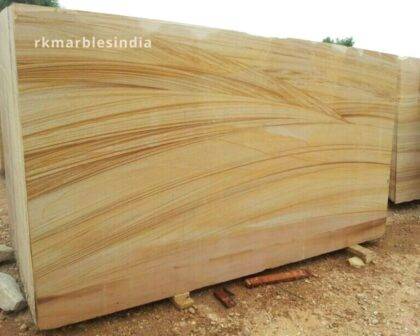Frequently Asked Questions
Got a question? We`re here to answer ! If you don`t see your question here, drop us a line on our Contact Page
Sandstone is a sedimentary rock made up of sand-sized mineral particles, mainly quartz and feldspar. These particles are held together by a natural cementing agent such as calcite or iron oxide, giving the stone its characteristic sandy texture and appearance.
Sandstone is known for its strength and durability due to its tightly packed grains. It has been used for centuries in various architectural structures such as buildings, bridges, monuments, and sculptures withstanding harsh weather conditions.
Yes! One of the reasons why sandstone is so popular among architects and designers is that it can withstand both indoor and outdoor environments without losing its colour or strength.
Absolutely! Sandstones are perfect for pool coping or decking as they are non-slippery when wet due to their porous nature which allows water to drain through them easily.
One of the great things about using natural stone like sandstone is that it requires very little maintenance. To keep your sandstone looking its best, you can simply sweep or mop the surface regularly to remove any dirt or debris. Sealing the stone every few years will also help protect it from stains and weathering.
Sandstone can be finished in a variety of ways depending on the desired look and application. The most common finishes include natural cleft, honed, polished, and flamed. Each finish gives the stone a unique appearance and texture.
Yes! Sandstone is non-porous and heat-resistant, making it a suitable choice for kitchen countertops or backsplashes.
For spills on your sandstone surface, quickly blot the area with a clean cloth to absorb any liquid before it seeps into the pores of the stone. Avoid using harsh chemical cleaners as they can damage the stone's natural finish.
To test if your sandstone needs sealing, pour some water on the surface and observe how long it takes for the water to be absorbed. If the water is absorbed within a few minutes, then your stone may need sealing. However, if the water beads up and does not get absorbed at all, then your stone may not need sealing yet.
Yes! Sandstone is a completely natural material that does not require any chemicals during its production process, making it an environmentally friendly choice for construction and decoration purposes.



